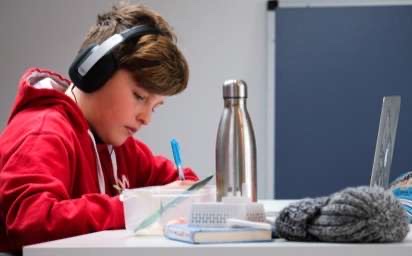
Thousands of teens will be awaiting their GCSE and A-level exam results over the next week with both excitement and trepidation. Results day is a big moment in their lives and will impact your teenager’s immediate prospects. However, with the right support to assist them in coping with exam results, they’ll feel reassured that they can find a way to their chosen future.
Disappointing grades
Not getting the results teens wanted can hit them hard. Not only does it feel like the next steps they hoped to make in life are slipping from their grasp, but they also have their peers’ results to compare themselves to, piling on a double measure of pressure.
What can we do?
How can we support our kids to cope with this stress and any feelings of failure? As adults we have developed skills to help us handle disappointments in life. Our kids, however, are susceptible to being more affected.
Listen and support
Listen to your child and question how it feels for them, and don’t attempt to play down the situation: ensure you respect their viewpoint. ‘Never dismiss what feels like a big deal to them as they need to know that their feelings matter to you,’ says Spurgeons Clinical Lead Debbie Pattison.
Even if your kids didn’t get the A-level results they wanted, UCAS advise that parents call the university or college anyway as the student may still be accepted. Discuss with them some possible alternatives if their choice of university isn’t possible. ‘It’s important to allow them to come to their own decisions’, says Debbie. ‘This makes the child feel empowered again and shows them that they have the resources in them to solve things.’
Support
Emphasize that you hear your child and express your support for how they’re handling the situation. Reassure them that even though we don’t know what the future holds, you’re proud of them for dealing with the loss of things that were important to them.
Make sure they know that you are with them and cheerleading for them no matter what, and that they know their future can still be bright and successful. You can also be proactive in helping them make a plan for what they will do next; a back-up university perhaps, or ideas for a different A-levels. Maybe they’d even like to take a gap year and see the world, or volunteer to work with animals. By helping them plan they will feel fully supported and reassured that life will go on, albeit in a different direction.
Likewise, if your child’s GCSE grades were not what they needed, look in to different courses or a strategy to help them find their way. There are many routes to the same destination!
No wrong path
It may help children to remember that there is ‘no wrong path’ to their intended destination. If they didn’t get the grades they hoped for on results day, discuss how there are many avenues to the same outcome- different courses, apprenticeships, work experience etc. Research different routes so that they feel they can still find their way.
Perspective
Offer a little perspective. While acknowledging and validating their feelings, you can offer a more positive spin on things. Remind them of their other successes, both in education and in their personal lives or hobbies. Mention upcoming holidays or things to look forward to, and remind them that one day the disappointment they feel over these results will be left behind. Their lives will have moved on successfully, even if it doesn’t feel possible now.
Get planning for the immediate future
Suggest they come up with ideas of how they’d like to spend their remaining school holidays. Not only is it a great distraction, but also hands them autonomy and a chance to come up with positive ideas, which can help them feel better.
Share some of your own experiences
It can help children to hear what disappointments you went through in your own life and how you overcame them- and how you are proof that people bounce back from trials and tribulations. Discuss what you use personally as a coping strategy, and what they could employ in their own lives to help them feel better- seeing their friends perhaps, spending time with their pet, or absorbing themselves in their hobbies and interests.
Further resources:









